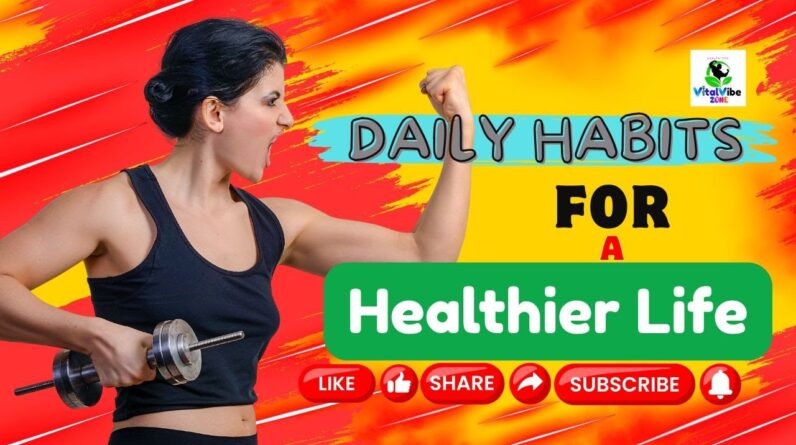
The Power Duo: Unveiling the Vital Link Between Nutrition and Fitness
Fueling Your Workouts: The Importance of Proper Nutrition
When it comes to achieving optimal fitness and reaching your health goals, nutrition plays a crucial role. Just like a car needs fuel to run efficiently, our bodies require the right nutrients to perform at their best during physical activity.
The Building Blocks of a Balanced Diet
A balanced diet should include a variety of nutrients that provide energy, support growth and repair, and help maintain overall health. Here are some key nutrients to focus on:
1. Carbohydrates
Carbohydrates are the primary source of energy for our bodies. They are found in foods such as whole grains, fruits, vegetables, and legumes. Consuming complex carbohydrates, like brown rice and quinoa, can provide a steady release of energy during workouts.
2. Proteins
Proteins are essential for muscle growth, repair, and recovery. Include lean sources of protein such as chicken breast, fish, tofu, and beans in your diet. They provide the necessary amino acids needed for optimal muscle function.
3. Fats
While fats have received a bad reputation, they are an important part of a balanced diet. Healthy fats, like those found in avocados, nuts, and olive oil, provide energy and support hormone production. They also aid in the absorption of fat-soluble vitamins.
The Timing of Nutrition: Pre- and Post-Workout Meals
What you eat before and after your workout can significantly impact your performance and recovery. Here’s what you need to know:
1. Pre-Workout Nutrition
Before exercising, it’s important to fuel your body with easily digestible carbohydrates and a moderate amount of protein. This combination provides the necessary energy and amino acids for optimal performance. Consider having a banana with a tablespoon of almond butter or a Greek yogurt with berries.
2. Post-Workout Nutrition
After your workout, your body needs to replenish glycogen stores and repair muscles. Consuming a balance of carbohydrates and protein within 30 minutes to an hour after exercise is crucial. A post-workout meal could include grilled chicken breast with sweet potatoes and steamed vegetables.
The Impact of Fitness on Nutritional Needs
Just as nutrition influences fitness, fitness levels also impact our nutritional needs. Here’s how:
Increased Energy Expenditure
Engaging in regular physical activity increases energy expenditure. This means that individuals who are physically active require more calories to fuel their workouts and support their overall energy needs. It’s essential to adjust your calorie intake accordingly to avoid nutrient deficiencies.
Hydration
Staying hydrated is crucial for optimal performance and overall health. When you exercise, your body loses water through sweat, so it’s important to replenish those fluids. Drink water before, during, and after your workouts, and consider sports drinks for intense or prolonged activities.
Muscle Recovery and Nutrient Timing
Intense workouts can cause muscle damage, and proper nutrition plays a vital role in the recovery process. Consuming an adequate amount of protein post-workout helps repair damaged muscle fibers and stimulates muscle growth. Additionally, a balanced diet with the right nutrients supports overall muscle recovery.
Striking the Right Balance: Nutrition and Fitness Working Hand in Hand
Nutrition and fitness go hand in hand when it comes to achieving optimal health and reaching fitness goals. Here are some practical tips for striking the right balance:
1. Plan Your Meals
Take the time to plan your meals ahead of time to ensure you’re getting the right nutrients. Include a variety of colorful fruits and vegetables, whole grains, lean proteins, and healthy fats in your diet.
2. Stay Hydrated
Make sure to drink enough water throughout the day, not just during workouts. Carry a water bottle with you as a reminder to stay hydrated.
3. Listen to Your Body
Pay attention to how your body responds to different foods and workouts. Everyone is unique, and what works for one person may not work for another. Adjust your nutrition and fitness routine accordingly to find what suits you best.
4. Seek Professional Guidance
If you’re unsure about the right balance of nutrition and fitness for your specific goals, consider seeking guidance from a registered dietitian or certified fitness professional. They can provide personalized advice and help you create a plan that works for you.
Conclusion
Nutrition and fitness are inseparable partners on the journey to a healthier and fitter lifestyle. By understanding the importance of proper nutrition, the timing of meals, and how fitness impacts our nutritional needs, we can optimize our performance, support muscle recovery, and achieve our health goals. Remember to fuel your body with a balanced diet, stay hydrated, and listen to your body’s unique needs. With the power duo of nutrition and fitness, you’ll be well on your way to unlocking your full potential.








